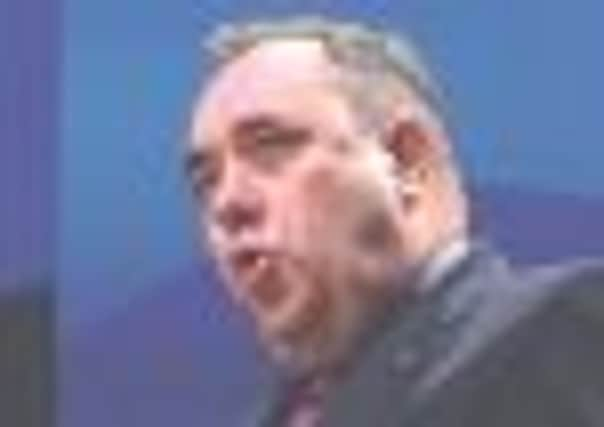Anlaysis: Party running at speed but leaders are keeping the brakes on


The biggest complaints were caused by the lengthy queue which delegates had to endure as they arrived in order to get their passes. Salmond allowed himself a small boast in his speech yesterday that, at this rate, the party will need to book the new 12,000 seat Hydro Arena which is gradually emerging next to the conference venue. This is a party which keeps on having to remeasure the height of its own expectations. And that, potentially, is where the problem lies.
Last year’s remarkable majority victory in the Scottish parliamentary elections has fast-forwarded the party’s route map to independence. But Salmond will know full well that while the result last year was a massive vote of approval in his leadership qualities and his party’s aptitude in government, it was most definitely not a demand for independence. As pollsters have demonstrated, backing for independence among those who are decided remains stuck at around 40 per cent. Pushing that above 50 per cent is very possible, with the First Minister’s aides noting yesterday that they believe 20 per cent of the population are now in the “persuadable” category. But the figure in favour has not budged in the weeks since Salmond launched the pre-referendum campaign.
Advertisement
Hide AdAdvertisement
Hide AdWith those voters still wavering, the judgment being made by Salmond and his team appears to be not to go too far ahead of them. The party knows that the most popular political place at present is in some form of “devo-more” area. Voters appear to want Scotland to have more control over the domestic economy, while remaining in the Union. Thus, the ever cautious party hierarchy continues to talk up the virtues of devo-max – all taxes to be raised in Scotland – being on the ballot paper when the referendum is held.
There are now signs of impatience within some parts of the party rank-and-file over this caution. Within the SECC’s precincts yesterday, delegates agreed that both the openness towards a second question on devo-max and Salmond’s use of the phrase “home rule” yesterday when describing his vision of an independent Scotland “would not go down very well” among many. These activists don’t like the idea of the party appearing to water down the message that Scots have to choose: independence or bust. Nor are they entirely sure as to why, when the SNP is so utterly dominant at Holyrood, it is not throwing caution to the wind and making a clear and unadulterated call for independence. One notes: “They [the leadership] are so preoccupied about not frightening people. They’re worried of frightening of women with all the talk of divorce. The trouble is it then gets to the stage where people might ask, well, what are you standing for? At some point we have to get out and state the case. And we have to look after the core who might end up getting pissed off if we don’t do that.”
Writing in Holyrood magazine this weekend, former SNP MP Jim Sillars added: “The fact that Alex and his ministers tower over the opposition at Holyrood has made the leadership and the party at large intellectually lazy. They rejoice in managerialism, coveting credibility. That is not enough for a party that claims to seek a complete break with the present constitutional and economic set up.”
This is the price of success for Salmond. The gradualist experiment he has led so successfully is nearing its fundamental conclusion. Sooner, perhaps, than he may have expected.